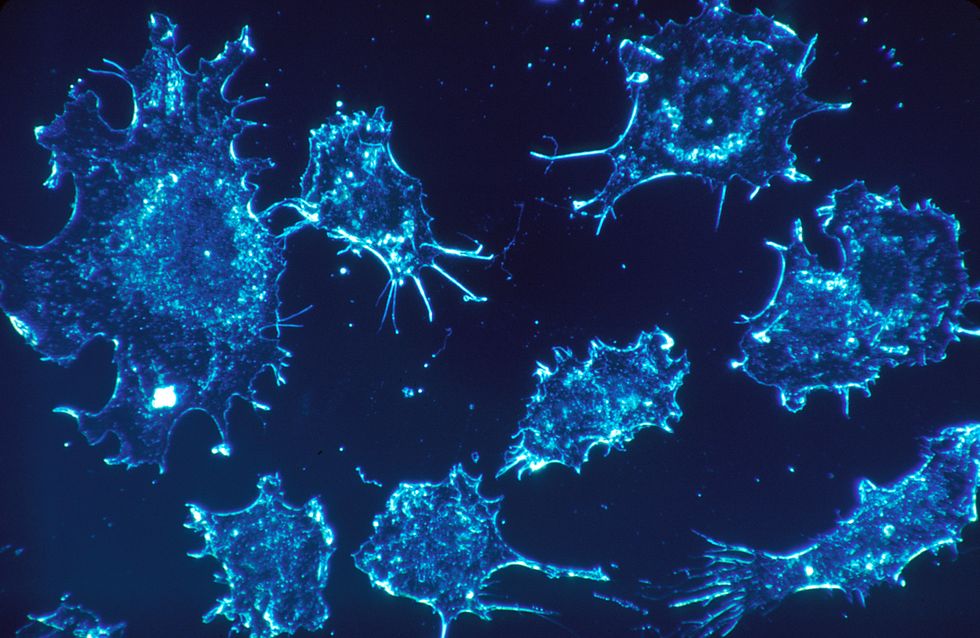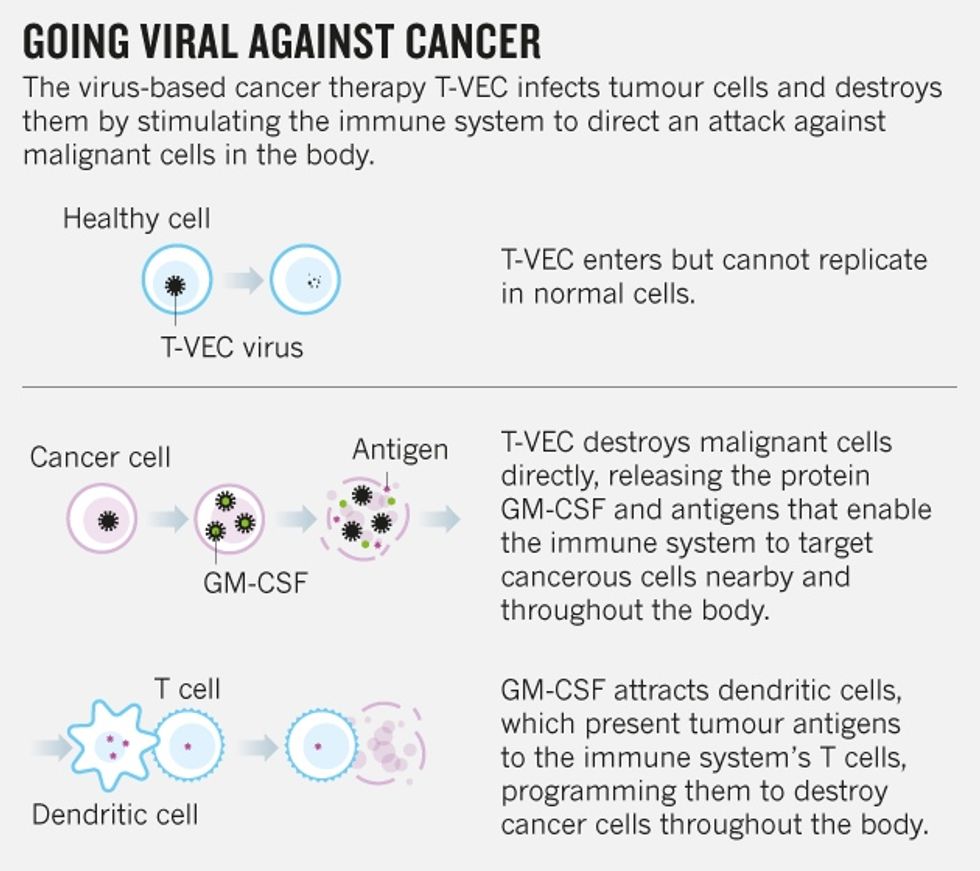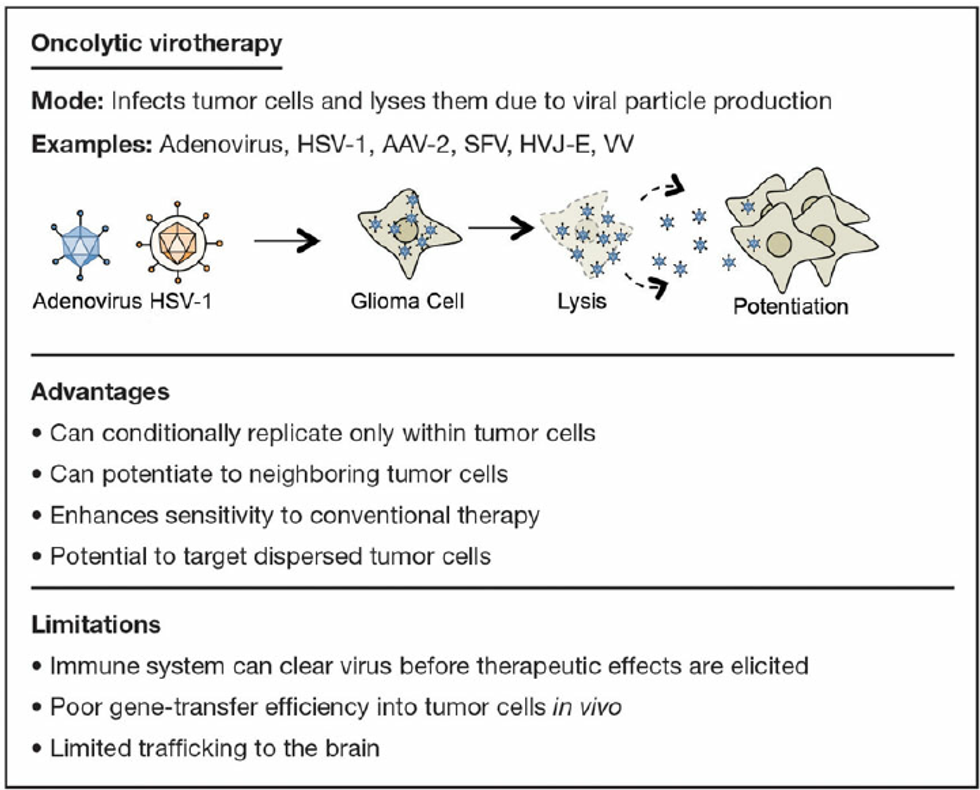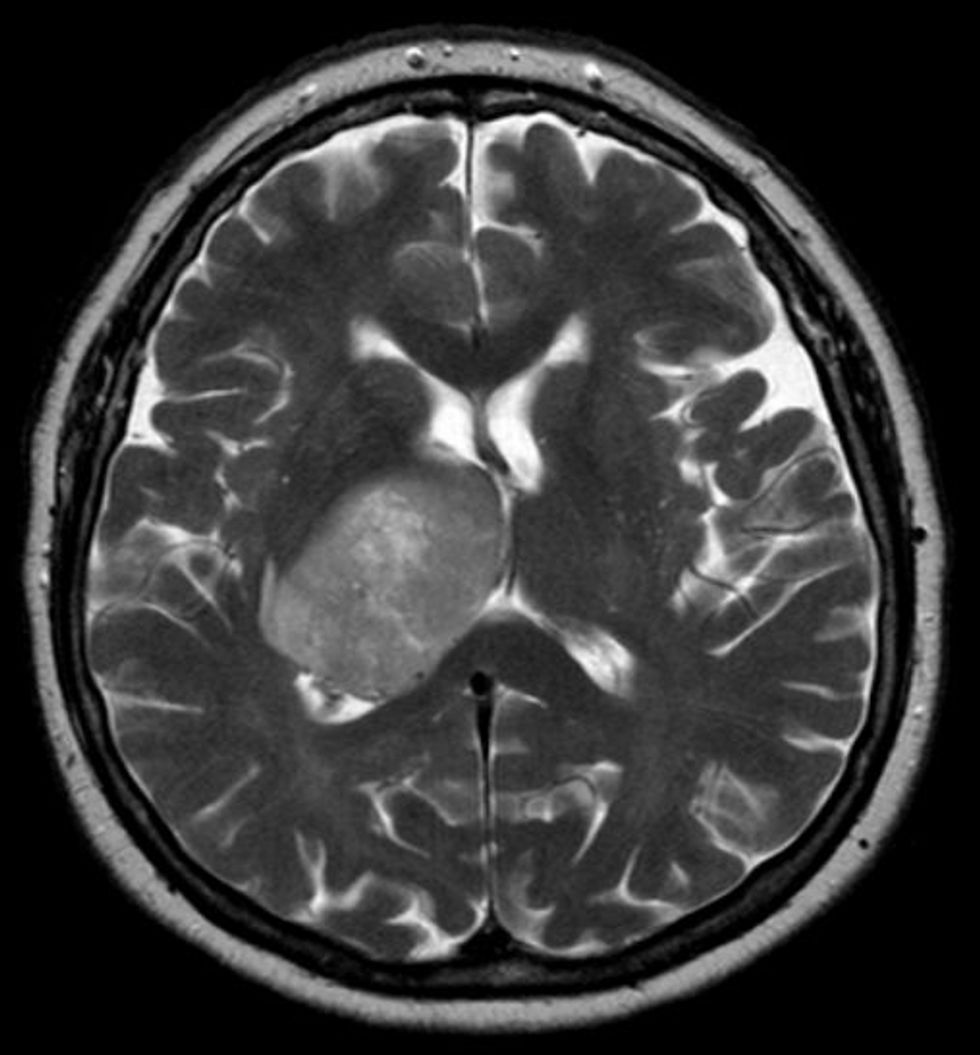In the recent decade, cancer has been a major medical phenomenon that has claimed the lives of billions of people worldwide. This disease starts with the immune system, a critical bodily system. As cancer cells grow, our immune system does not recognize malignant cells as a threat; therefore, this prompts rapid growth, leading to possible tumors, pain and other deadly symptoms.
What is it?
As a combat treatment, Oncolytic Virotherapy is a new treatment for cancer that uses genetically modified viruses to trick the immune system into attacking cancerous cells, which have a weak ability of fighting off infections. Although normal viruses may potentially harm the body, these engineered viruses can only survive in certain cells, making this an ideal treatment method.
How does it work?
Oncolytic Virotherapy uses several different existing viruses, each with a different way and method of destroying cancer cells. Whether it is a direct effect of the virus or a subresponse of the immune system, this, in most cases, leaves a dead malignant cell.
Below are three different methods based on the the type of virus used.
Herpes Virus/ T-VEC
The FDA approved a genetically engineered virus called talimogene laherparepvec (T-VEC), which is used mainly to treat advanced Melanoma.
The T-VEC genetically engineered virus acts as a a starting catalyst to cancer cell destruction, releasing a special protein and several antigens to attract an immune response cell called the dendritic cell. This cell then presents the antigen to the common T-Cell, which then uses the information in the antigen to spread and repeat the process.
This virus is also effective against breast, brain, skin and lung cancer cells.
Common Cold Virus/ Delta 24
This virus acts in a different way than the Herpes Virus.
Firstly, Delta 24 is injected into tumors, where it then attacks the protein, ATG5, which only lives in cancer cells. Once inside, the virus makes nonstop copies of itself until the cell becomes so full that it explodes or lyses, destroying the cell. The virus replicates, and then it moves and spreads to other cancer cells.
Delta 24 works best against brain, skin and liver cancer cells along with other solid tumor tissue.
Poliovirus/ PVS-RIPO
PVS-RIPO, a cancer treatment developed by Matthias Gromeier at Duke University, is an engineered poliovirus, injected into a tumor, killing the tumor cells as well as triggering the immune system’s response. The main difference between this method and that of others is the immune system's role. Instead of using the virus' information, the body destroys the cancer cell using its own immune system.
Here are the steps below:
- Virus is injected into tumor
- Virus attacks cancer cells, creating a polio-like infection
- Body is tricked into thinking that there is a Polio infection
- Sends immune response to the cancerous cell, which includes the Polio Virus
- Cell is destroyed using the body's own defense mechanism
This method is mainly used against Glioblastomas, a rare form of brain cancer.
Does it work?
There have been numerous success stories of cured cancer patients.
Phil Baumann, 47-year-old male, was diagnosed with an incurable form of brain cancer called Glioblastoma. He had a tangerine sized tumor in the right side of his brain that was removed through surgery, radiation and chemotherapy. Unfortunately, the tumor returned to his brain due to hidden cancer cells. He joined the clinical trial at MD Anderson Cancer Center at the University of Texas, where Dr. Juan Fueyo, M.D., and Dr. Candelaria Gomez-Manzano, M.D. were testing the Delta 24 cold virus.
There, Baumann was injected with the Delta 24 virus. Six weeks later, the tumor stopped growing and soon disappeared. He has remained cancer free for four years since then.
Conclusion
Virotherapy, a successful cancer treatment, is becoming increasingly ubiquitous in many parts of the world, including Canada, China and large cities in the U.S. This technique uses aspects of genetic engineering to take advantage of a virus’ behavior in order to attack certain cancer cells without harming other tissue. Successful trials included the use of the Herpesvirus, Coxsackievirus and Poliovirus, revolutionizing advanced cancer research. Studies show that the use of Virotherapy have been more effective than chemotherapy and radiation, especially in a late stage patient, such as Baumann.
As we further cancer research and treatment, Virotherapy is yet another relief for suffering patients. Perhaps, in the near future, such therapy may not only be a treatment but also a cure.






















